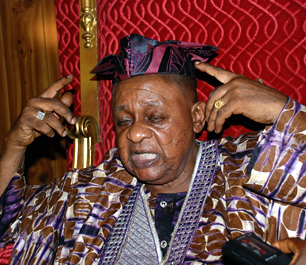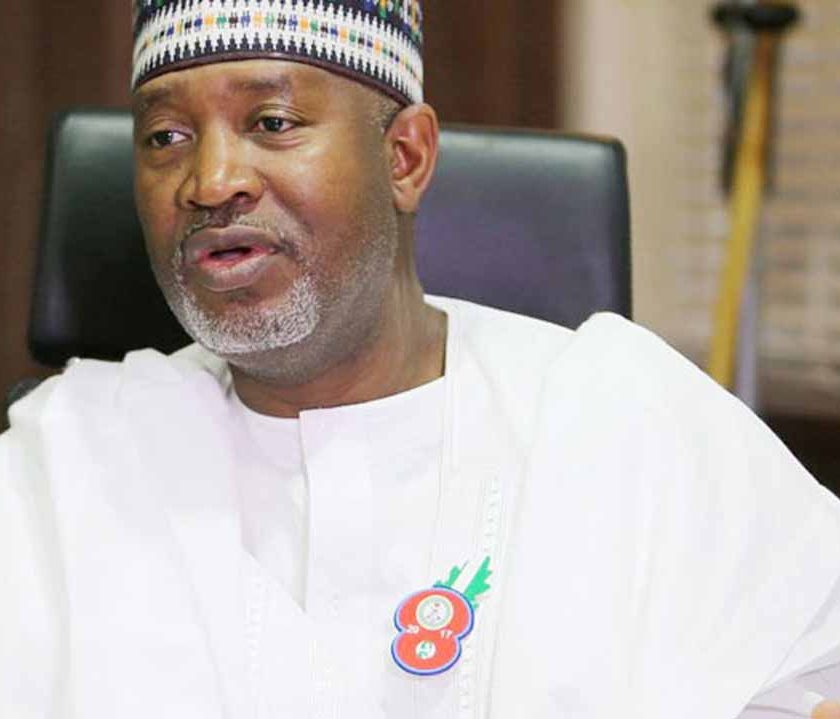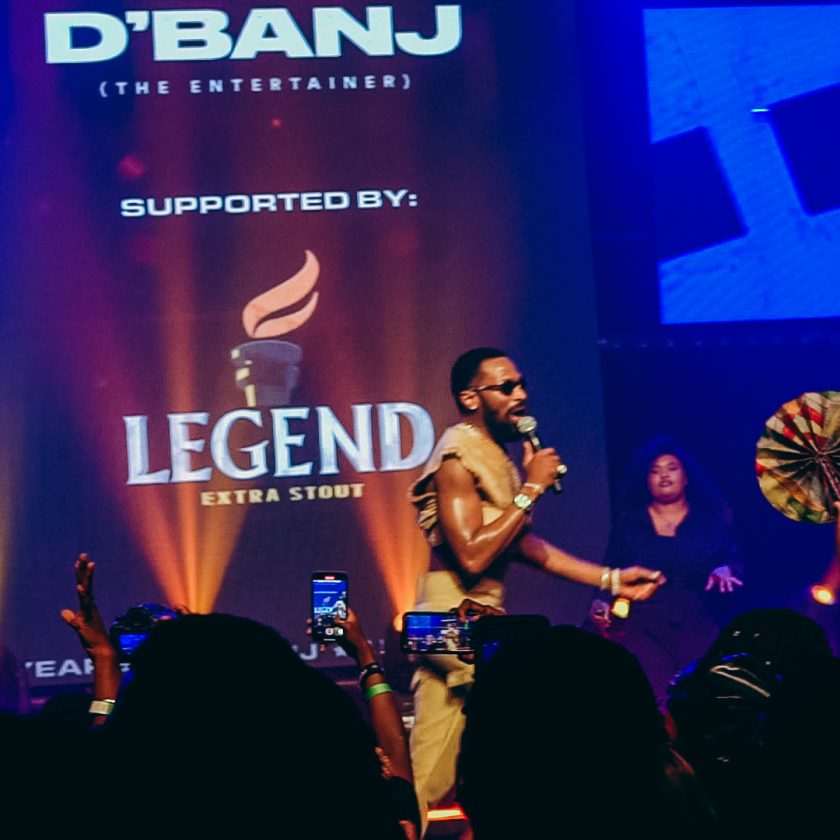Bold, royal and forward-looking, Oba Lamidi Olayiwola Adeyemi III ascended the throne of his predecessors as the Alaafin of Oyo on November 18, 1970. A traditional ruler of repute, the monarch has continuously demonstrated an abiding faith in the unity of the Yoruba race thus working towards the preservation of Yoruba culture. In this interview by TUNDE BUSARI, Oba Adeyemi speaks on the challenges facing Nigeria’s South West, why the appointment of a new aare ona kakanfo is being delayed, the role of traditional institution in nation building, his passion for boxing at age 78, among other issues. Excerpts:
You recently celebrated your 78th birthday. How would you describe the feeling?
I felt great and for that and many more I am grateful to God. He is the one who gives longevity. I am also grateful to my family, the Oyomesi and my teeming subjects who have remained solidly with me for so many years. I owe them gratitude for their consistent support. When you have the support of your subjects, then you have the support of God. And if you have God’s support, what else do you want? If you have the support of God, who else do you look up to? That has always been the guiding principle of my actions.
Let us put your reign in retrospect. How would you describe your first ten years on the throne?
My first years were rough, very rough. That period was characterised by some challenges and trappings occasioned by royalty. I met practically an empty palace. So, I had to start from the scratch. You could understand what that task meant.
You recently celebrated your 78th birthday. How would you describe the feeling?
I felt great and for that and many more I am grateful to God. He is the one who gives longevity. I am also grateful to my family, the Oyomesi and my teeming subjects who have remained solidly with me for so many years. I owe them gratitude for their consistent support. When you have the support of your subjects, then you have the support of God. And if you have God’s support, what else do you want? If you have the support of God, who else do you look up to? That has always been the guiding principle of my actions.
Let us put your reign in retrospect. How would you describe your first ten years on the throne?
My first years were rough, very rough. That period was characterised by some challenges and trappings occasioned by royalty. I met practically an empty palace. So, I had to start from the scratch. You could understand what that task meant. In every aspect you may think of, my first ten years were very rough.
How then did you go through that period?
I survived the challenges with my uncanny ability to confront them well. I survived the challenges with hope, determination and belief in God.
Is it even safe to say your life as a young boy in the palace of the Alake prepared you for the throne and helped you in the palace today?
Apart from the palace of the Alake, Oba Adedapo Ademola, I lived in other places, all of which influenced me. I lived with a doctor, a lawyer and one of the principals of Saint Andrew College, Olateko. When I was living with these people, I imitated them but I was being mocked.
You rarely wear your crown. As a matter of fact, the abetiaja cap has more or less become the symbol of the Alaafin of Oyo. Any reason for such sartorial choice?
The crown is a sacred object. It is the most prized paraphernalia of kingship. It connotes the essence of the Oba. Yoruba Obas wear crowns for cultural, traditional and religious purposes. In other words, the crown must be sparingly worn for its distinctiveness and cultural essence. During festivals, the attraction and indeed gravitational pull of the crown are unparalleled. The subjects must be eager to see the type of crown the Oba would wear. An average subject must see the crown of the Oba once in his lifetime. Subjects can only see the Alaafin putting on his crown in pictures. How many times is Her Imperial Majesty, the Queen of England, seen wearing her crown? What you see on her is her hat. It is not right to find traditional rulers wearing their crowns to just any kind of meeting or social function. Some monarchs have turned it into fashion objects. You will also find them carrying the same staff but with different colours everywhere. Even if their subjects don’t publicly talk about it, they are not happy about it.
Then why do you stick to abetiaja among other caps?
The abetiaja cap is a way to send a message. You can see that it is designed in a manner resembling the ears of a dog. The way I shape each piece sends a message. There is a specific message attached when one piece is shaped vertically and the other horizontally. If the two pieces are shaped vertically or horizontally, there is a message to be communicated. These messages are coded; only those who are versed in Yoruba culture can decode them. This is one of the intangible cultural heritages of Yoruba.
The place of the Yoruba tribe among other ethnic groups in Nigeria keeps coming up. Is there anything wrong with the Yoruba ethnic stock especially as regards its place among others?
What you call the Yoruba question is not as simple as you asked. At the same time, it is not that complex if we are ready to listen to the truth and adhere strictly to it. Anything short of this will not and will never address the question. It is unfortunate that despite our western education, we address issues based on sentiment and emotion. All of this will not take us anywhere in search of the truth. I think it is better we leave it at that. Before we leave it, I must say that I have said a lot and written a lot on this. But I must say it again that there are some important people who love to search for knowledge.
You just said that the Yorubas are fond of addressing issues emotionally. Is this the reason people in certain quarters have branded you as stubborn? Are you stubborn?
Why won’t they call me names when they are far behind in terms of intellectual capacity? You asked if I am stubborn. I throw the question back at you. Am I stubborn? I have accepted the fact that when some people find it difficult to match your pace in anything, they resort to blackmail. What you referred to as stubborn is one of their responses to cover their inadequacy. I have taken time and spent my money in search of knowledge and I have the results. I hardly travelled to the United Kingdom without visiting bookshops. I have found myself in a situation where I had spent all I had on books and was almost stranded. Can you believe that? It is high time we encouraged ourselves to seek knowledge because it is only knowledge that liberates man from ignorance. I have been involved in about 100 cases and won 98 of them. Why was it so? I am used to backing my claims with facts and relevant documents. I have so many documents which remain unchallenged till date. I am known for that. I am known for keeping documents to establish the truth. I have a lot of files containing different documents. If anybody who does not have all rises and say I am stubborn because I don’t want him to distort history, I am not bothered. I have said it at different occasions that an open debate should be arranged in which each of my critics should be allowed 30 minutes to talk while they give me just 10 minutes. When the late President Yar’Adua muted the idea of a conference of traditional rulers, I wrote a letter which I sent to him on September 28, 2007. He had to invite me and commended me for the details the letter contained. He said he was shocked with those facts in the letter. We should encourage our children to read. I am still buying books; I still read. We should imbibe a reading culture to make impact in the development of the larger society. We should ask ourselves what we contribute to the world as a distinct ethnic group.
Sometime in 2007, you thrilled a large pan-African audience at an event in London. What did you actually do there?
There is nothing special about the event than I was invited and delivered a speech under 10 minutes but which captivated the audience. The event was the 9th Gathering of Africa’s Best (GAB). It was held at the International Hotel, Canary Wharf, London, on Sunday October 21, 2007. The gathering comprised eminent scholars, physicians, pharmacists, engineers, computer scientists and other successful professionals from all parts of Africa. When I was introduced to the audience as a powerful, African traditional ruler, it was greeted with an ovation. When I rose and spoke and asserted Africa’s viable political systems before the arrival of the colonialists, the ovation was thunderous. The Guardian published my speech the following day in Nigeria. Go and read it in The Guardian of Tuesday, October 23, 2007.
Various aspects of the Yoruba culture are being eroded. What is the problem really?
Ours is a culture of refinement of human behavior; it is a culture of civility in respect for legally-constituted authority and respect for elders. We have specific greetings for every situation.
Before you are installed as a traditional ruler, you must undergo certain trainings before you are inducted into the mystic world of the gods. This is so because you are taken as a representative of the ancestors. How many monarchs can recite the panegyrics of their predecessors to invoke their spirit for guidance? If as an Oba, you quote the Quran or the Bible instead of the oriki of your ancestors, you must know that you are trained to be a pastor or an alfa. You are to chant the oriki of your ancestors to rekindle your subjects with the very essence of putting you on the throne.
Oyo is the centre of cultural and political civilization of the Yoruba race. Go and read what Adu Boohen, PhD, associate professor of History, University of Ghana wrote on page 90 of his book, Topics in West African History. The book was published by Longman Group Limited, London in 1966. I quote: ‘In many ways, Oyo is perhaps the most interesting of the states and empires that emerged in the forest and coastal regions of West Africa. For one thing, not only was it the earliest to emerge, but at the peak of its power, it was the largest area and culturally the most advanced.” It is unfortunate that we are not serious about promoting our culture. It is a serious issue because a nation that loses its culture loses its identity. We are dangling like a bat: neither here nor there. They want to speak English language, yet they are not proficient.
The drum has been classified as an intangible element of Yoruba culture. To what extent is this true and what is the significance of drums in Yoruba land?
Fortunately, I received a team of delegates from UNESCO. They came from Abuja and other countries. This was what we discussed and I was able to define what intangible element of our culture is. I think they were amazed with what I came up with. The drum you talked about is an important element that goes beyond dancing. The role the drum plays in the palace is communicational. It is a means through which I know what goes on around me. During the meeting with the UNESCO officials, a traditional ruler came to join us. But before he arrived the hall, my drummers had alerted me of his arrival in the palace premises but none of my guests knew. They would not know because they don’t understand the language of the drum.
Can you explain what is referred to as Alaafin’s royal initiation and covenant with the ancestors?
The initiation is an exclusive rite done with ‘igba aye’ (calabash of existence) and surrounded by initiated women who conduct the rituals at the oranyan compound inside the palace here. The calabash is mounted on the traditional oranyan tray with which the Alaafin is presented after he must have picked one of the three calabash bowls to determine his reign. Wives of former Alaafins perform the initiation. These women in the picture hold responsible positions and each of them heads a compound within the palace of the Alaafin.
What actually separates Alaafin Sango from others?
He was the first African physicist. He was reputed to have the ability to draw energy from lightening. He never carried any weapon but would effectively hit his enemies without physical contact. He is a deity while others are ancestors.
Eighteen years after the last aare ona kakanfo of Yoruba land passed on, we have not heard anything. What is the situation as regards the new holder of the title?
There is no problem but time has changed. The time we appointed Abiola was an opportuned time when Abiola was using his wealth to better humanity. He was funding universities and giving scholarships to students. What he did cut across Yoruba land to the extent that people saw him as higher than a president. It is a good thing that he came from Yoruba land. He was a gift to Yoruba land and humanity. His football team, Abiola Babes, was better funded even than the national team. Players were given houses and cars. His other investments also gave better life to workers.
Does it mean we are not in a haste to have his successor?
You are a journalist, a man of the world. Give us a list of five people that can be appointed. It is not my duty alone to find people; it is your own duty too to come up with names.
I am aware you still engage in some physical exercises at your age. Isn’t it risky?
What is risky? What is not risky? Is life itself not risky? Can a traveler confidently say he would arrive his destination? Even if he is confident of his driving experience, he cannot say same for those coming behind him or oncoming vehicles. We have seen vehicles leaving their lane and crossing over the demarcation, thereby colluding with others vehicles. That is the reality of human life. You cannot ascribe risk to doing physical exercise.
How do you feel throwing and receiving punches in the boxing ring at your age and as a monarch?
I feel good because it is my sport. Any sport that improves one’s health is good for one’s body. I am okay with it.
What stood you out among other boxers when you were young?
Whatever you want to know about my boxing life can be found out from Fabio ‘Lanipekun. He is your columnist. Go and ask him about me. He will tell you all you need to know.
I want to know from you what your strong point is. For instance, Mike Tyson is known for hard punches. What is yours?
I am a double-fisted attacker. What does that mean? It means to defeat me, you must be ready to take many punches.
SOURCE-NIGERIAN TRIBUNE





